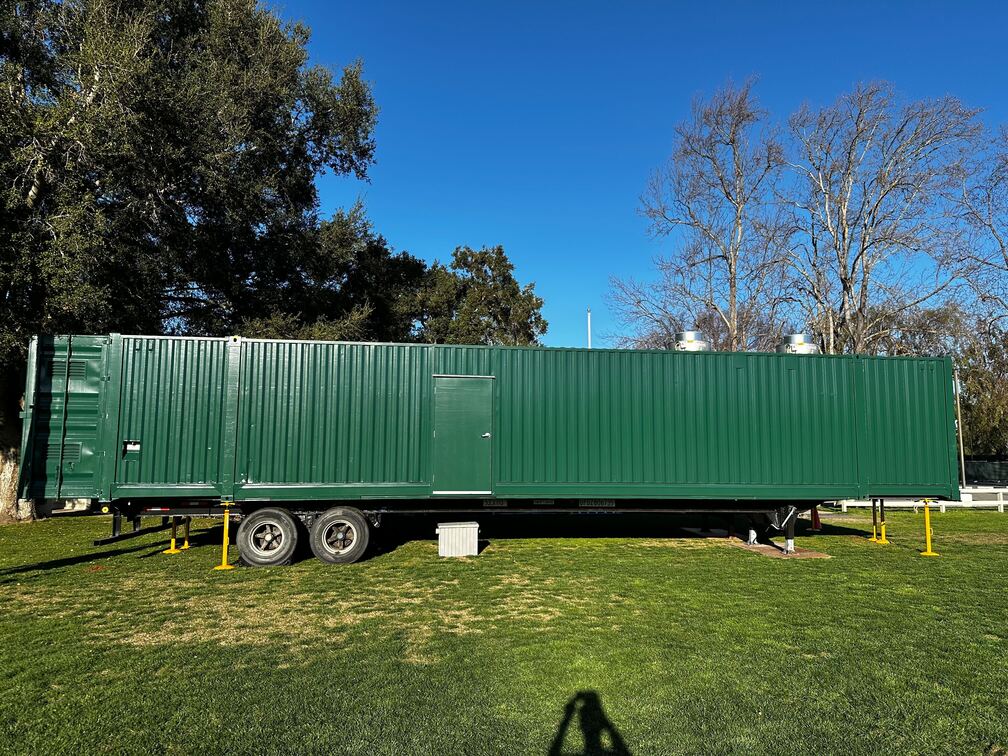
Introduction
What does it actually cost to rent a mobile kitchen? For hospitality leaders planning a renovation or expansion, this question often triggers a deeper dive into logistics, budgeting, and compliance. With temporary foodservice solutions becoming vital for hospitality operators including resorts, golf clubs, senior communities, amusement parks, and hotels, understanding the cost dynamics of mobile kitchens has never been more critical.
In this article, we break down the true cost of renting a mobile kitchen, from price ranges and influencing factors to budgeting tips and real-world use cases.
What is a Mobile Kitchen Trailer?
Mobile kitchens are fully-equipped, transportable facilities built to meet commercial foodservice standards. Common formats include:
- Kitchen trailers: Easily towable and suitable for a wide variety of transport and deployment scenarios.
- Containerized kitchens: Known for their durability and ideal for long-term or semi-permanent setups.
- Food trucks: Compact and mobile, designed for quick setup in urban or event-based settings.
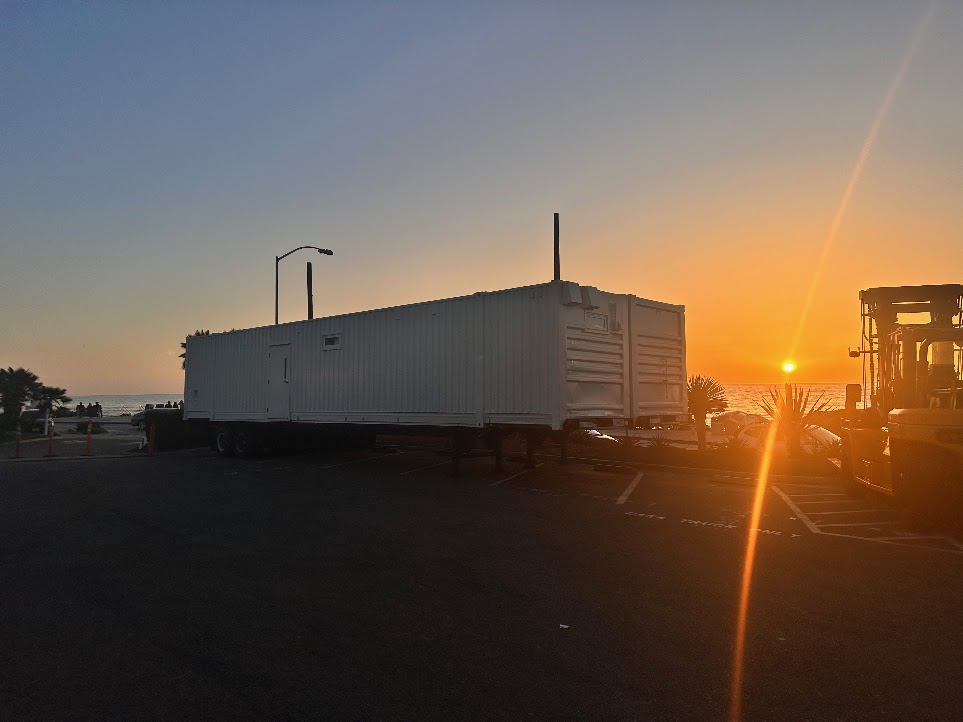
Understanding Mobile Kitchen Rental Costs
The cost to rent a mobile kitchen varies significantly depending on your specific needs—such as rental duration, kitchen size, location, expected foodservice volumes, and required equipment. Here’s a breakdown to help you better estimate the cost of a mobile kitchen trailer:
Daily, Weekly, and Monthly Rental Rates
- Daily Rentals: $250 – $2,000+
- Weekly Rentals: $1,500 – $8,000
- Monthly Rentals: $5,000 – $50,000+
Note: These figures align with industry averages and may fluctuate based on specific requirements and regional factors.
Cost Ranges by Size and Number of Meals

Key Factors That Influence Rental Costs
Kitchen Size and Layout
Larger kitchens designed for full-service operations naturally cost more than compact prep-only units. The physical footprint and layout sophistication (e.g., multiple cooklines or zones) directly impact rental pricing.
Note: Mobile Culinaire offers four mobile kitchen sizes tailored to different food service volumes:
- 32' - 150-200 meals
- 40' - 200-250 meals
- 53' - 300-450 meals
- 2x53' - 500-650 meals
Specialized Equipment
While standard equipment is typically included, requesting non-standard appliances such as combi ovens, tilt skillets, or specialty cooking tools can significantly increase costs due to additional power needs, space requirements, and custom installation.
Rental Duration and Contract Terms
Longer rental terms often unlock discounted monthly rates, while short-term or emergency-use rentals can incur premium fees. Flexible or month-to-month agreements may also be available at higher per-unit pricing.
Deployment Location
Remote or hard-to-reach locations (e.g., rural resorts, mountainous areas) increase transport, labor, and setup costs. Urban environments may also pose logistical issues like permitting for sidewalk or street placement.
Permitting and Local Compliance
Municipal health and safety regulations vary widely. Permitting fees, fire suppression upgrades, and health department inspections are often required, and costs can escalate if local compliance standards are stringent.
Maintenance and Service Support
Routine maintenance may be included, but extended rentals or high-usage environments may require additional service visits or emergency repairs. Confirm what’s covered to avoid surprise charges.
Optional Add-ons
Add-ons such as ADA ramps, entry decks, electric generators, and grease traps improve usability and compliance but are typically priced separately. These upgrades can be essential for functionality or code compliance.
Additional Support Units
If your operation needs to go beyond cooking, you may require extra refrigeration trailers, dry storage, dishwashing stations, or mobile restrooms. These units are critical for high-volume or long-term service continuity and can substantially increase overall rental costs.
%2520(1).jpeg)
Comparing Rental vs. Purchase: Which Makes Sense?
Renting
Renting a mobile kitchen is ideal for short-term or transitional needs, typically under 18 months. It offers flexibility, quicker deployment, and significantly lower upfront costs. This option is particularly valuable during renovations, seasonal spikes, or special events. However, if the rental extends beyond a year and a half, cumulative monthly fees can start to rival or exceed the cost of ownership.
Buying
Purchasing a mobile kitchen is a strategic investment for long-term or permanent use. Though it requires a higher initial outlay, it can deliver substantial savings over time for operators running continuous or recurring operations. Purchase prices generally range from $150,000 to $500,000, depending on the unit's size, equipment configuration, and level of customization.
Budgeting Tips for Renting a Mobile Kitchen
Hidden Fees to Consider
In order to avoid hidden costs, you should ask your provider about:
- Deposit
- Shipping
- Site Prep, Utility Connections & Restoration
- Add-Ons and Essential Equipment
- Permits
- Cleaning, Maintenance & Repairs
- Contract Adjustments: Early Termination or Extensions
- Insurance Premiums
For more information, read our article about the top 8 hidden costs to consider.
Questions to Ask Your Rental Provider
- Is the equipment commercial-grade and NSF certified?
- What kind of permitting assistance do you offer?
- Are there any extra fees for cleaning, removal, or insurance?
- What happens if the project timeline changes?
- Is a grease trap included in the rental, and does it meet local code requirements?
- Are grey water tanks provided, and who is responsible for disposal?
- Is an electric generator included, and how is fuel or power managed?
- Are propane tanks part of the rental, and are refills or replacements covered?
- Do you provide ADA-compliant ramps and access decks, or are they optional upgrades?
Note: For regulatory guidance and operational standards on temporary food facilities, refer to the U.S. Food and Drug Administration’s Food Code, which outlines best practices for mobile food establishments.
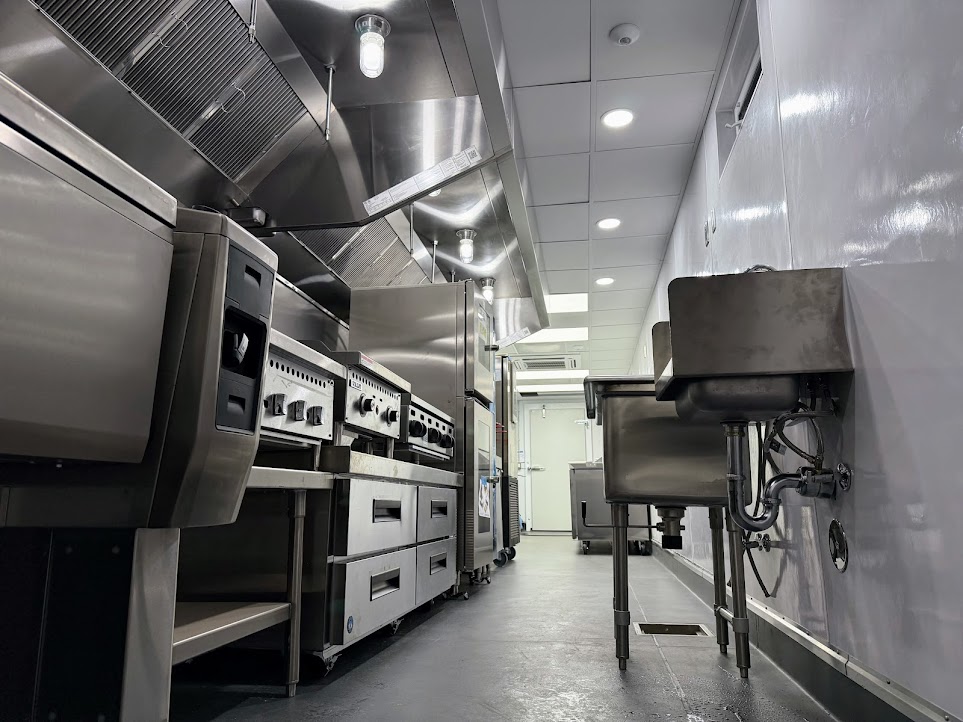
Case Studies: Mobile Kitchen Rentals in Action
Renovations at Hospitality Businesses
Renovation projects at exclusive hospitality venues often require a high-volume, fully equipped kitchen to ensure uninterrupted service. These projects typically call for mobile kitchens capable of producing 500+ meals daily and include equipment like walk-in coolers, dishwashing stations, and advanced cooklines.
Note: Mobile Culinaire provided a 2x53’ kitchen trailer to a prestigious California country club during a 5-month renovation. The unit included a full-service kitchen, walk-in cooler, freezer, and dishwashing facilities, ensuring uninterrupted culinary operations.
Kitchen Services for Senior Living
Facilities serving older adults often require equipment for specialized dietary prep, high-volume storage, and advanced dishwashing systems. The National Institute on Aging emphasizes the importance of nutrition in older populations, which necessitates commercial-grade kitchens that support customized diets and consistent meal delivery.
Note: Mobile Culinaire provided two connected 53’ units with conveyor dishwashers and ample storage for a senior community’s 6-month kitchen upgrade.
.jpeg)
Conclusion & Next Steps
The costs and benefits of renting a mobile kitchen depend significantly on your specific requirements, including project duration, scale, equipment needs, and location. Generally, renting is the optimal solution for short-term or temporary needs, offering flexibility, lower upfront expenses, and streamlined logistics. It's particularly advantageous for renovations, events, seasonal operations, or interim expansions.
For long-term or permanent needs, purchasing a mobile kitchen often becomes more cost-effective despite the higher initial investment. Ownership provides stability, potential customization, and financial benefits over an extended period.
How Mobile Culinaire Simplifies Cost Planning
Mobile Culinaire’s in-house manufacturing allows better cost control and faster delivery. Our experts assist clients through every step, from design and compliance to deployment and removal. We ensure your rental stays on budget without compromising quality!
Plan your mobile kitchen rental with a trusted leader. Contact Mobile Culinaire to get a tailored quote or explore our kitchen models.
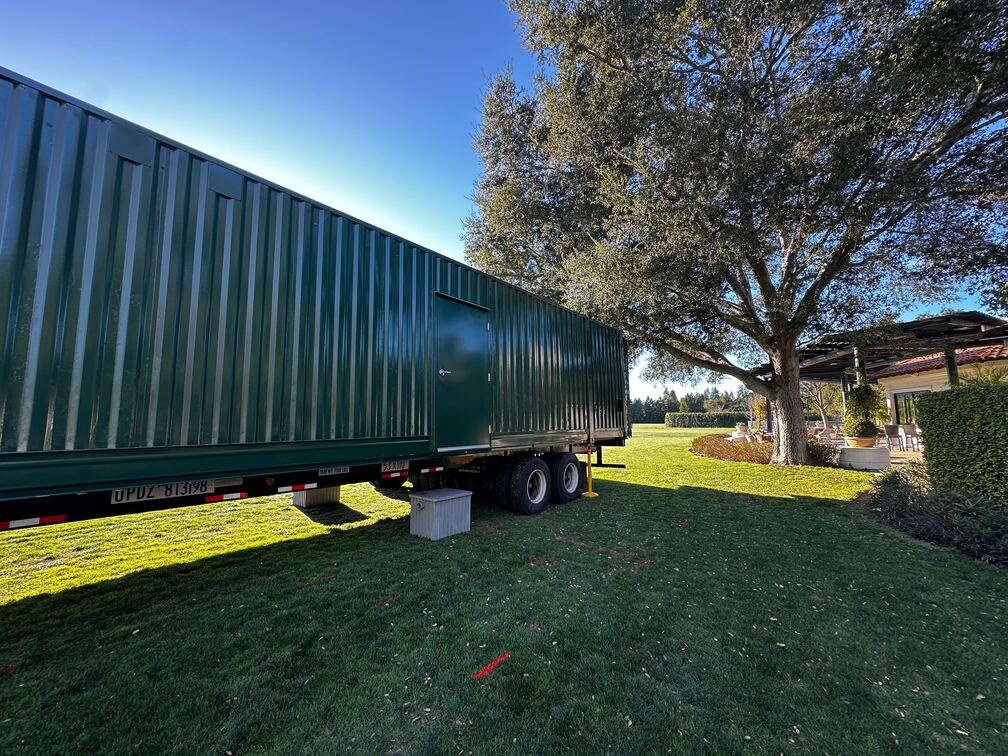
People Also Ask (FAQ)
How much does it cost to rent a mobile kitchen?
Rental rates typically range between $2,000 and $50,000 per month, depending on the size, features, and rental duration. Short-term leases tend to have higher monthly costs.
What factors influence mobile kitchen rental pricing?
Mobile kitchen rental costs depend on several key factors, including the size and layout of the unit, the type of equipment (especially if specialized or non-standard), and the duration of the rental. Location also plays a major role, remote or difficult-to-access sites can drive up delivery and setup fees. Additional costs may arise from permitting requirements, ongoing maintenance, and optional add-ons like ramps, decks, grease traps, generators, and propane tanks. Support units such as refrigeration, storage, or restrooms can further impact the total rental package.
Is it better to rent or buy a mobile kitchen?
If your project spans less than 18 months, renting is usually more cost-effective and flexible. Buying is more suitable for long-term or permanent needs.
Testimonial

"What is standing out when you look at the mobile kitchen operation is the efficiency that we can really achieve because it's built for that."
Tell us about your kitchen needs and request a quote.
.png)
Turnkey mobile kitchen
.png)
Proudly made in-house in the USA
.png)
Commercial grade kitchen equipment
.png)
Code-compliant
Trusted by Industry Leaders



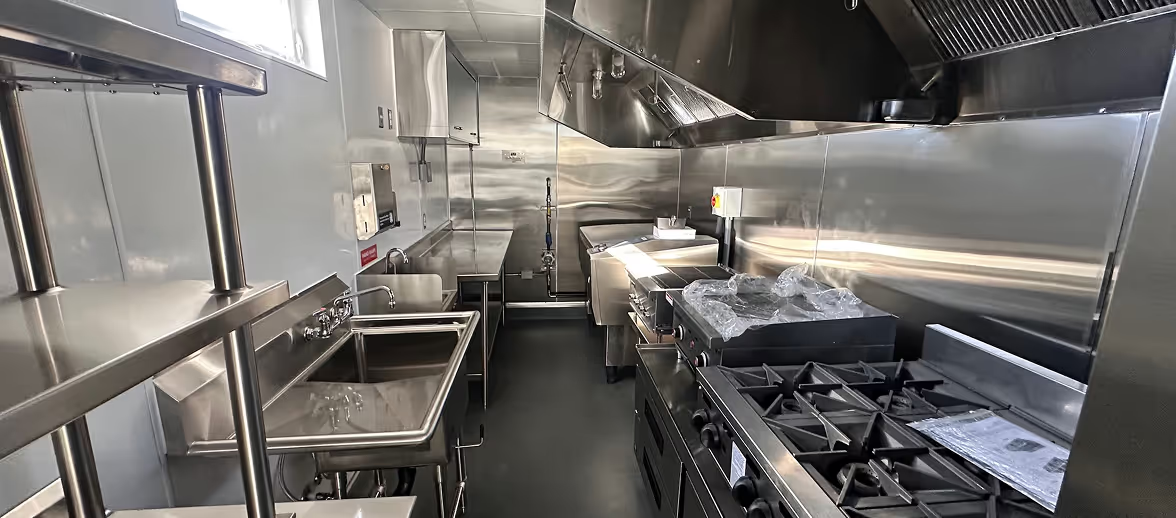
.gif)

%20(1).avif)
%20(1).avif)
%20(1).avif)